Rich Robinson talks The Magpie Salute, creativity and The Black Crowes' end
The Crowe flys again
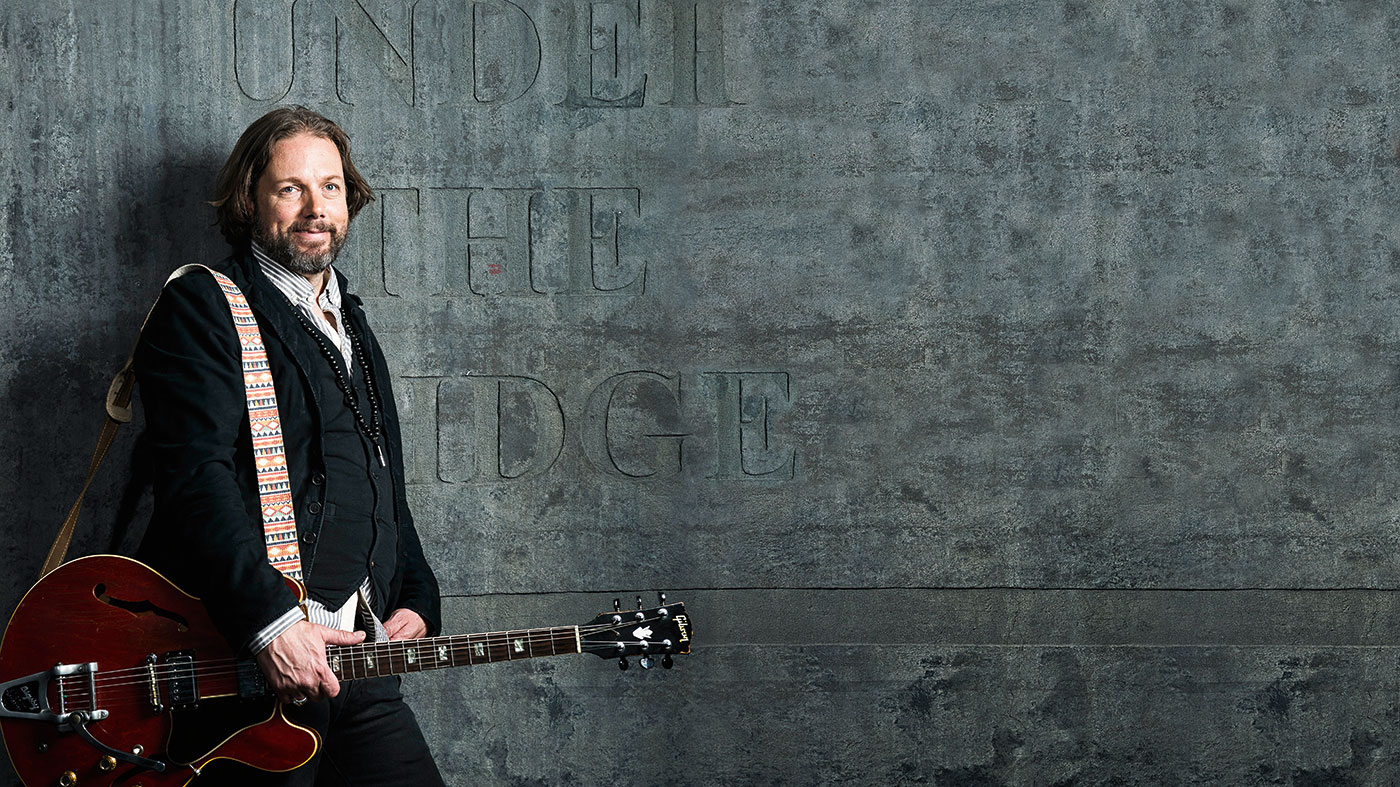
Introduction
"There’s no chance of a reconciliation. It just didn’t end well,” says The Magpie Salute leader Rich Robinson of The Black Crowes - the band he found fame with and co-founded with his older brother, Chris.
It was really silly how the band ended all these years in... But it’s okay, what I’m doing now has a lot of positivity
In the '90s, The Black Crowes were hailed as the saviours of southern rock, breathing new life into the art of the dusty, sun-kissed riffs Lynyrd Skynyrd and Allman Brothers Band had made famous.
They managed to capture a spirit of vintage Americana where countless others had tried and failed. And yet, despite the millions of album sales and sold-out tours, it all came crashing down in January 2015.
“It was really silly how the band ended all these years in,” continues Chris, before a short pause. “It was unfortunate that it ended that way. I have nothing but fond memories because it’s my whole life’s work.
“I wrote all that music. I lived in that band for 24 years. I have respect for what we accomplished and a lot of love for the work we did, but sadly it ended. And that’s cool, things change and move.”
You’re probably wondering when was the last time Rich spoke to his brother… “We don’t talk,” says Rich. “But it’s okay, what I’m doing now has a lot of positivity.”
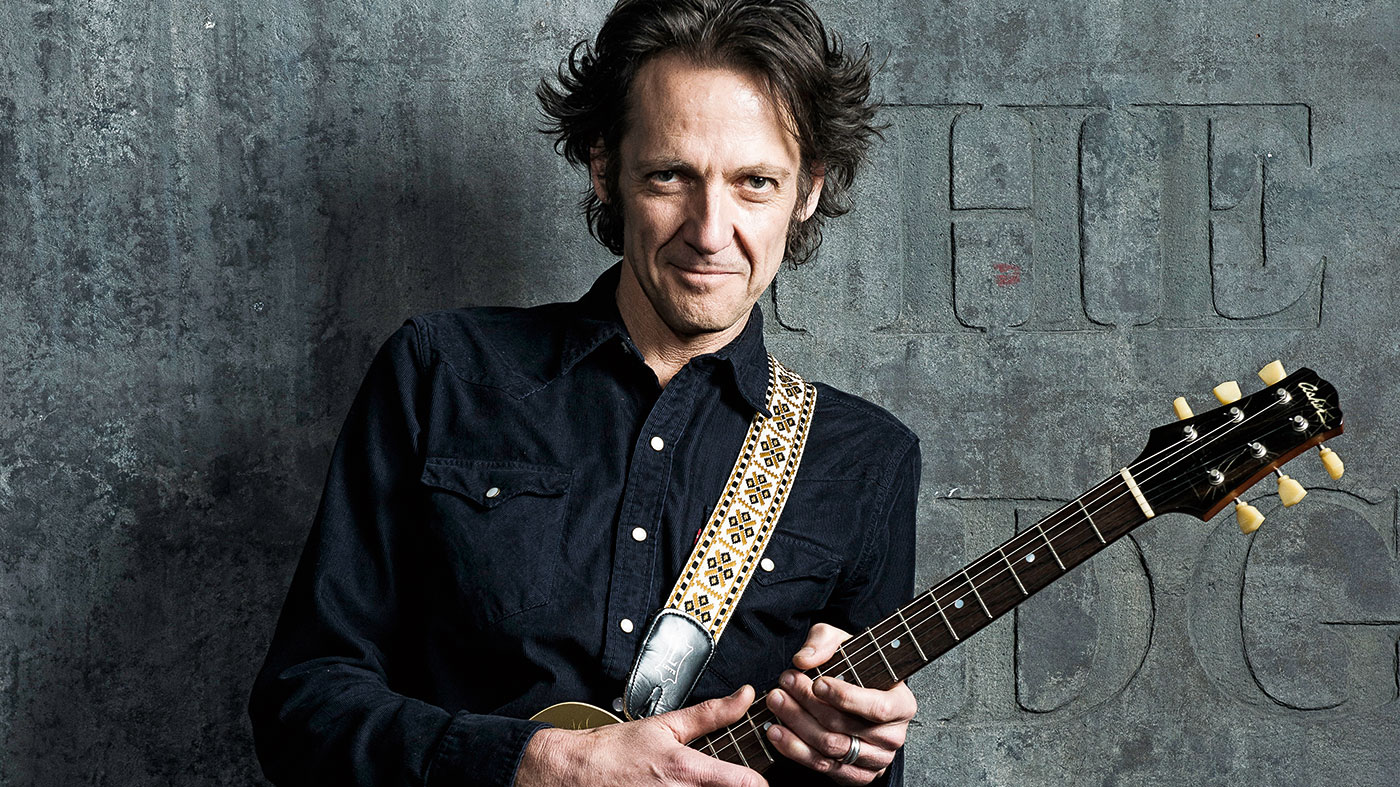
Things goin’ on
Positivity certainly feels like the right word to describe Rich’s latest musical escapades in The Magpie Salute.
It all began when the guitarist had finished up on fourth solo record Flux and got invited to play the Woodstock Sessions at Applehead Studios, New York. To make the performance extra special, he decided to call up some friends from the past.
I like Rich, but back then I never knew if I liked him. I never got a chance to know him, there was always something in the middle
“I’ve been doing this for almost 30 years now and I felt like I wanted people in my life that had an understanding of my musical language and the songs I’d composed,” he admits.
“Marc [Ford] had some guitars in the Crowes locker in New York and when the flood happened only a few made it,” he says of the 2012 flood caused by Hurricane Sandy that devastated The Black Crowes’ gear in storage. “I got a friend to give the guitars back and we started communicating.”
Having not spoken in the decade since Marc’s second tenure in the group (his first ending in dismissal for excessive drug use) the two musicians gradually rebuilt old bridges…
“I didn’t have a direct line to Rich,” offers Marc, who played on 1992 chart-topper The Southern Harmony And Musical Companion, its 1994 follow-up Amorica and parting release 1996’s Three Snakes And One Charm.
“We didn’t speak at all until this thing started. When I was asked how I felt about playing, it was like, ‘Dude, of course, there was never a problem there!’ No one was ever mad at the music. I like Rich, but back then I never knew if I liked him. I never got a chance to know him, there was always something in the middle.
“When a band splits to its core and brothers are involved, everyone has to choose a side. There’s a division immediately and it’s bad from the beginning. But you know what? It wasn’t rotten because it was beautiful too. Everything great comes at a cost, I guess.”
Along with fellow Crowes Sven Pipien on bass and keyboard player Eddie Harsch - who sadly passed away last year - Rich began assembling a new-old band for his second appearance at the Woodstock Sessions. It was, in many ways, a life-changing decision…
“I said we should get together for some covers, maybe a few Crowes songs,” he reveals. “And it all just worked. Everything aligned and it was just there. We played and recorded the show, then went on our own way. I started to invent ways of making this happen more. I needed to figure out how this could be and how it could work. When we play things to each other, we instantly get it - we totally understand each other on a deeper musical level.”
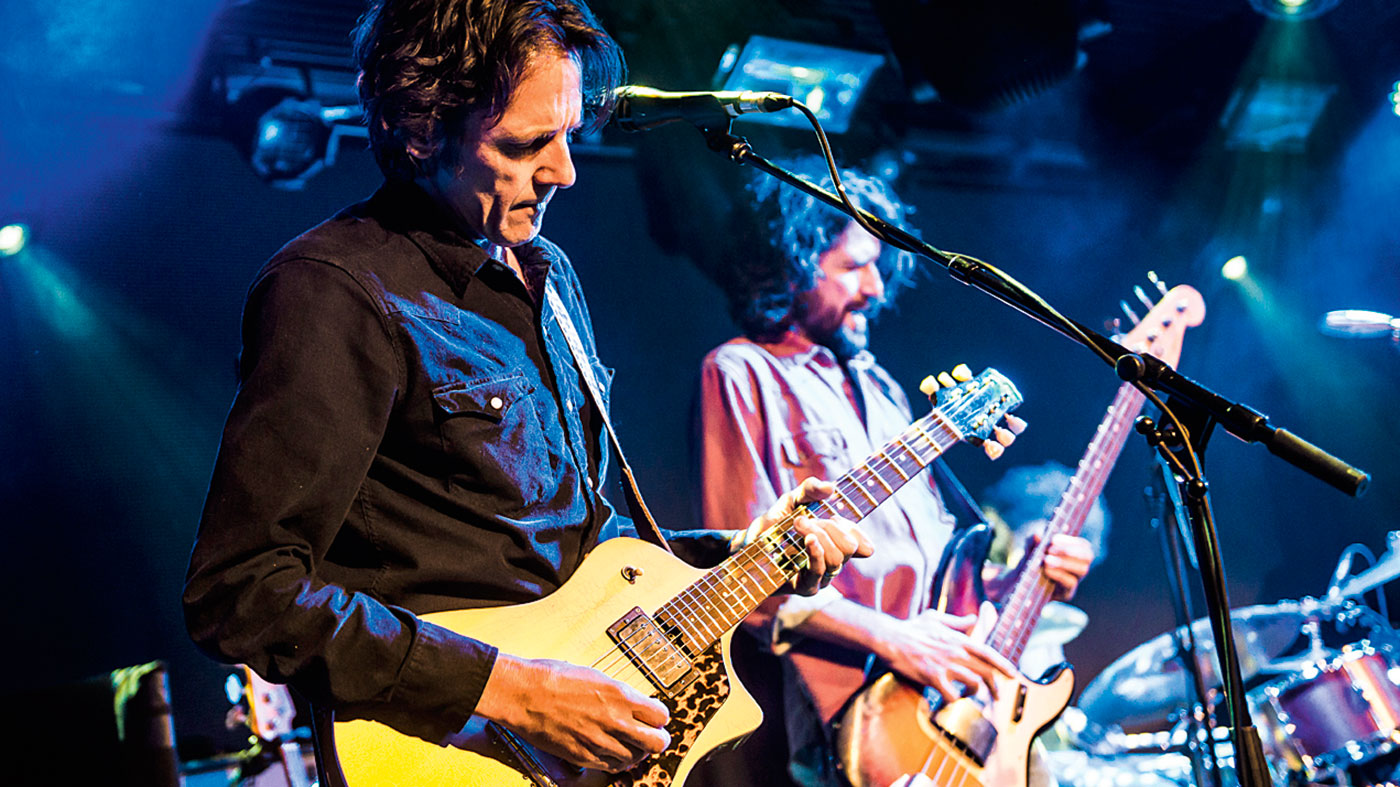
Gimme back my bullets
And so the band was born. Rich was keen to acknowledge the past and in its own weird little ways, the world told him The Magpie Salute were the words he was looking for.
“The magpies are in the crow [Corvidae] family,” he continues. “There’s a superstition there - the whole story about how people greet the magpie with, ‘Good morning, captain!’, which is also a Crowes song.”
I’m excited about 2018 because my goal is to hit the studio around February and record a whole double album of originals
Now they had the moniker sorted, it was time to get this band up and running. The Magpie Salute got together to whizz through 100 songs in three days in preparation for their four-night residency at the Gramercy Theatre in New York. It was a mammoth task - which could have ended in disaster - though, ultimately, was an experience that filled the musicians with hope.
“After dipping our toes in the water, we decided to give it a go properly,” says Rich, “and the only way to do that was to book a string of shows. We learned all those songs because we wanted different setlists each night and all four sold out.
“I’m excited about 2018 because my goal is to hit the studio around February and record a whole double album of originals. I want to take the next step and create completely on our own. I can’t wait to see how it turns out.”
“Rich and I have a relationship that was supposed to be,” adds Marc. “We really did not know what we were doing but it worked so well. In the fire of the 90s [the band’s internal battles], it felt like we were ducking and cowering.
“This band is the product of that intense musical life together. Now I’m 51, we’re older and wiser. I had to clean out some of my character defects to get on with people, because music is about relationships. I’ve worked damn hard to get where I am now. I fought for my life… our music shows that! It made us start thinking about new possibilities. A new life for an old family.”
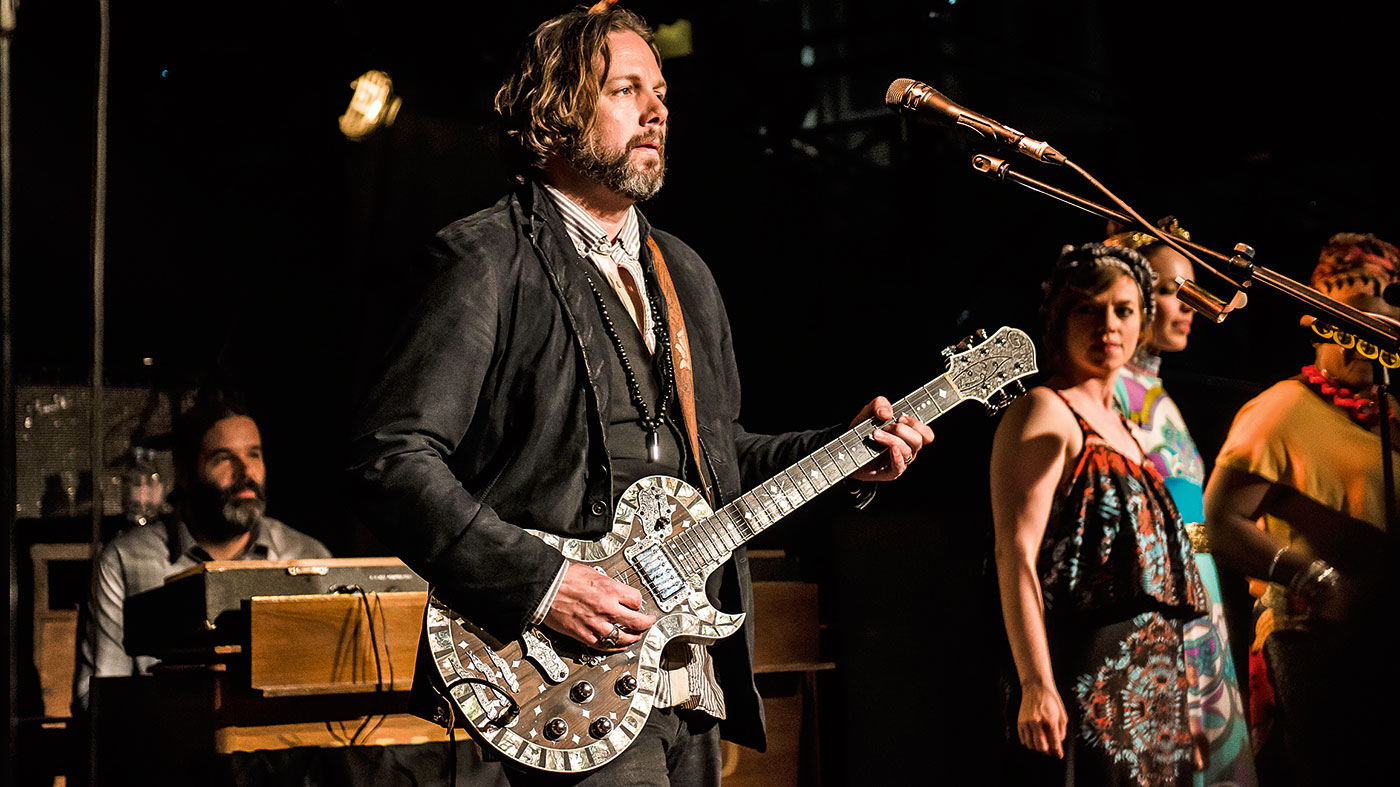
Listen and learn
Rich Robinson and Marc Ford are not schooled players in the formal sense. While many use scales and patterns to build their vocabulary, The Magpie Salute pair (along with additional guitarist Nico Bereciartua - an Argentinian who Rich felt “had great energy”) rely almost exclusively on the ear.
I love exploring open tunings. Because I use them about 90 per cent of the time, a lot of it is trial and error
“Seriously, I don’t even know anything about the technical terms out there,” laughs Rich. “You said I use a lot of double stops, but I don’t know anything about them. I just write what sounds good to me - there’s no way to categorise or explain it.”
One thing the guitarist is confident to explain is the world of open tunings and how that forced him to forsake banking on the usual patterns - because, of course, they would often make little sense once an instrument has been retuned. Without that safety net, it came down to just feeling the right notes before memorising them…
“I love exploring open tunings,” continues Rich. “Because I use them about 90 per cent of the time, a lot of it is trial and error. As I started soloing more over the years, I’ve built my own language and learned the difference in playing in open G versus open E versus this open C chord; they’re all the opposite of each other. I’ve had to learn what works and what doesn’t.
“Altogether I use around 15 different ones, which all vary to some degree, sometimes it might be open G with a capo or open E with a capo elsewhere. Or you might have dropped D or open C - where I basically tune to just a C chord and drop the low E down to a C, so you get two octaves on the bottom.
“There’s another one that is all Ds and one A - I’ll tune the top two exactly the same, the middle two the same an octave down, then one low A and a low D. I’ve also used open D7 tunings, which sounded really cool. Sometimes, I’ll tune the guitar to whatever I feel and then I’ll just see what happens.”
“I know my 1/4/5s and my seventh chords, but very little beyond that,” nods Marc. “It’s like a street language, I know how it all goes but I can’t explain it. The only thing I ever did was figure out how to play good songs and write ones just like them! I’d watch others doing it and mimic it in my own way. Then I built the platform where I bring the content. Be brave, man. You gotta be honest with music... people can tell.”
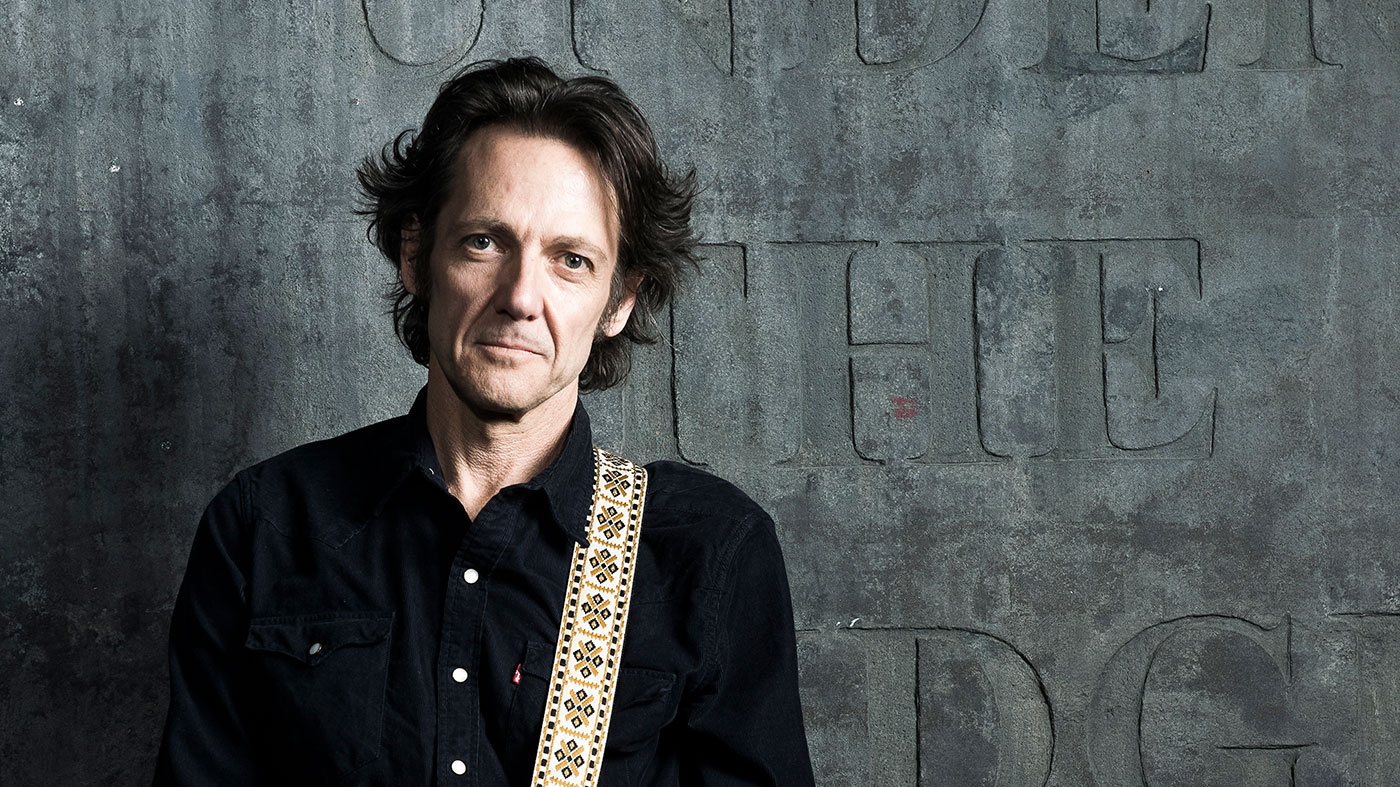
Slide away
There’s plenty to be learned from the Crowes/Magpies school of slide guitar - often the icing on the cake for their signature swampy sound.
Rich explains how his approach came down to three key players, each teaching him the importance of vibrato, phrasing and heart in every note played.
All my slides have always been thick brass. I use the weight against itself, like a counterweight to get more feel
“I always loved Ry Cooder - he was one of my favourites, along with Lowell George and Duane Allman. There was something about all of them that always sounded amazing. Duane was… Duane! The guy was on another planet, really.
“I loved the sweeping technique that Lowell used - his vibrato wasn’t fast, it would just hang there over everything. It was beautiful. He used a metal slide. I say the heavier, the better. You can use that weight to get the slower vibrato. All my slides have always been thick brass. I use the weight against itself, like a counterweight to get more feel.”
“I didn’t think I had a style until recently,” admits Marc. “I never had any tuition other than the initial chords to Oh My Darling Clementine, or whatever. My slide playing all came from listening to records. Even if I could never get it there exactly, I knew what I was hearing emotionally. If I’m lost for ideas I think, ‘Who would go here? It might not be slide. What would Richard Thompson do?’ Once you’re in, you’ll find your way. It’s about finding the entrance points and the slide is a tool.”
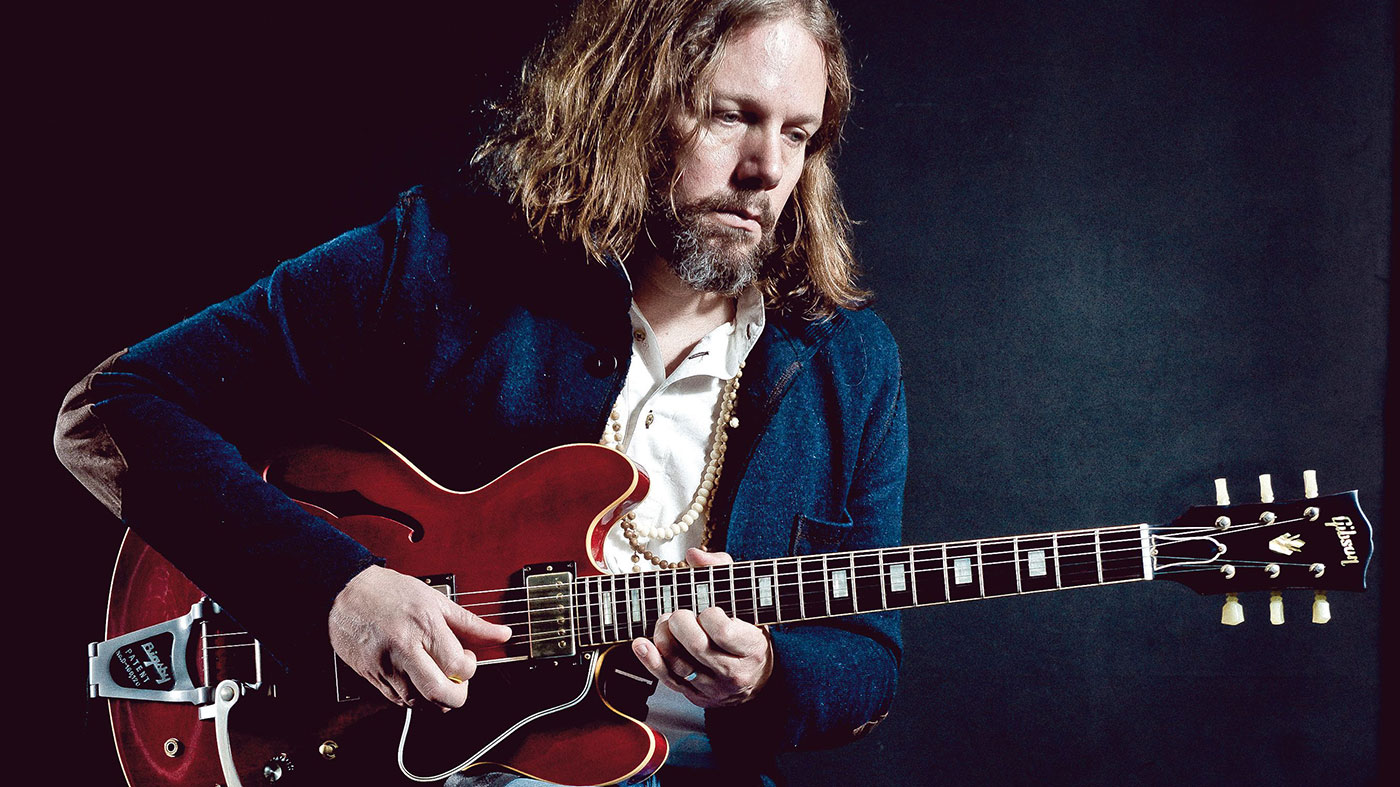
Imperfect storm
Perhaps the most definitive aspect of any music Rich and Marc have worked on in the past is just how free their recordings and performances feel.
In a similar spirit to the title of the most recent Lynyrd Skynyrd album, Last Of A Dyin’ Breed, the musicians wear their old-school values with pride, loving the imperfections of music in its most raw form…
I believe you don’t have to master any instrument. You don’t have to be the best
“Perfection isn’t a real word - who knows what perfection is?” shrugs Marc. “The only way to learn is to simply do it a lot. Get in the car and go and play in front of people, some of them will hate you and others will love you. As a kid I used to play with old gnarly blues dudes who were really tough,” Marc continues.
“You needed thick skin to get anywhere near that stage, let alone pick up a guitar. But I believe you don’t have to master any instrument. You don’t have to be the best. People say Neil Young is a horrible guitar player and I would argue he’s one of the best I’ve ever heard. It depends what you’re looking for… acrobatics? Or something with a message that hits you in the gut?”
“I was brought up loving a lot of Indian music,” recalls Rich. “I like the human element, the little nuances and micro-tones. You hear all these ‘singers’ that can run scales, but 99 per cent of them are using Pro-Tools with someone sat there tweaking every single note. But we are not that in pitch as humans. Everyone has a tendency to hit a certain scale or speak at a specific note - we all have our own frequency.
“Listen to guys like Paul Rodgers, Robert Plant or Rod Stewart, they might sing one 10th of a tone off-key - maybe a little sharp, maybe a little flat - it would be almost funny to hear them going through auto-tune. They’re singing in their own relative key. That’s what we forget… there is no exact fuckin’ key.
“It’s the same with drums - if you have a computer quantising rhythms, that’s the worst thing in the world. John Bonham had this huge kick drum that would push and pull over Jimmy Page, these are the things that make bands unique and incredible.
“Nowadays, people put everything into the computer and it spits out clinical-sounding horse shit with no soul. Humans don’t play that way. We have a tendency to get excited about a chorus and maybe speed up a little bit… that then interacts with the listeners, who also get excited about what’s coming. A computer can’t do that - which is why it won’t have any feel. Honesty is what’s amazing about music.”

Rich's gear
Gibson ES-335 [above]
Rich: “This guitar I recently bought in Chicago because I’m always up for getting more 335s. It’s ’68 and when I played it, I got that feeling right away... it generated a sound that was pleasing. It’s one of my favourite new ones.”
Gretsch Falcon
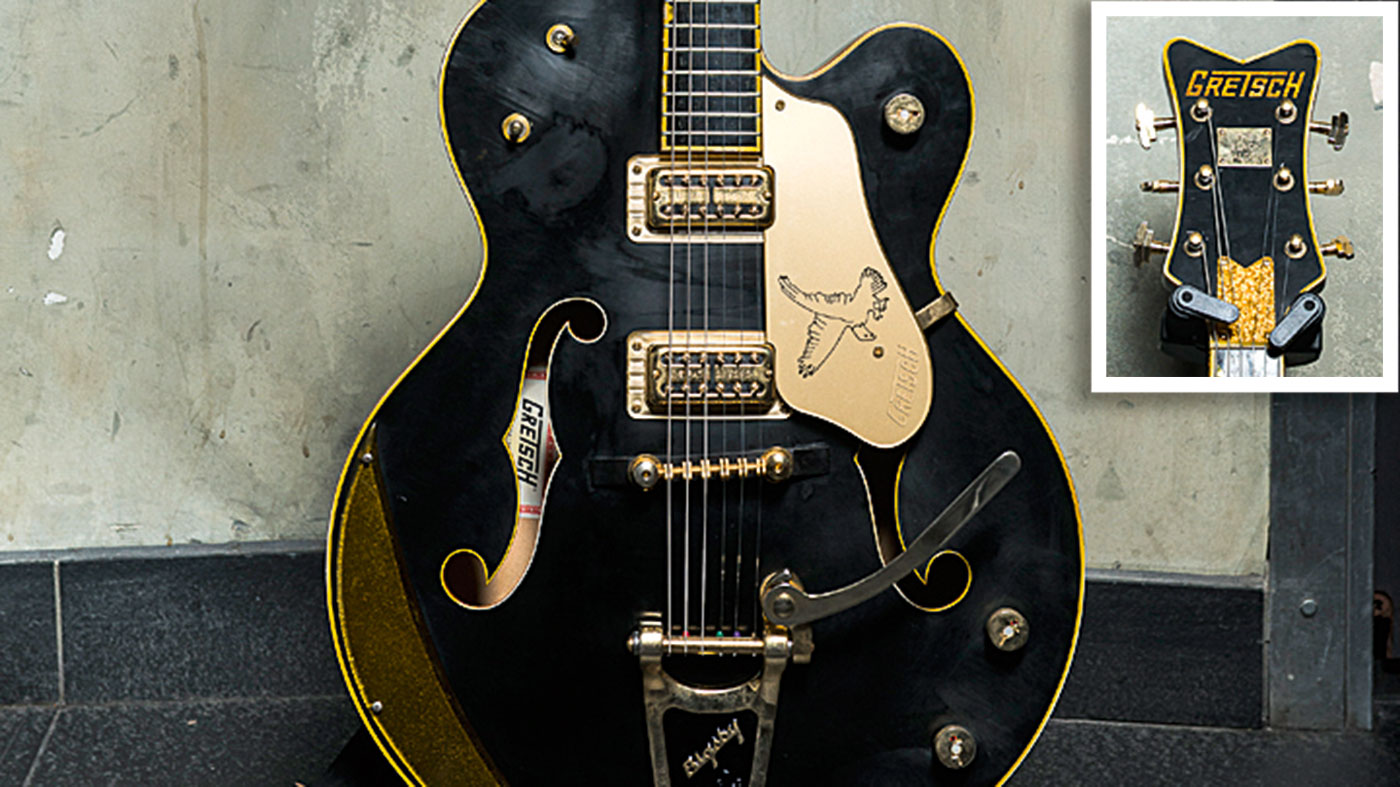
“This Black Falcon is something Gretsch made for me with a few tweaks here and there. It’s got TV Jones pickups and is literally one of my favourites; a real go-to guitar for me. I would use it on songs that need more of classic Gretsch sound… I had it back in the Crowes for songs like Bad Luck Blue Eyes Goodbye or Good Friday.
The guitar has a crispness to it, but when you turn it up there’s a real bite too
“The guitar has a crispness to it, but when you turn it up there’s a real bite too. A lot of my favourite guitarists play Gretsches: Neil Young, Stephen Stills, even Malcolm Young used to bust out a White Falcon.”
Gibson Les Paul Goldtop
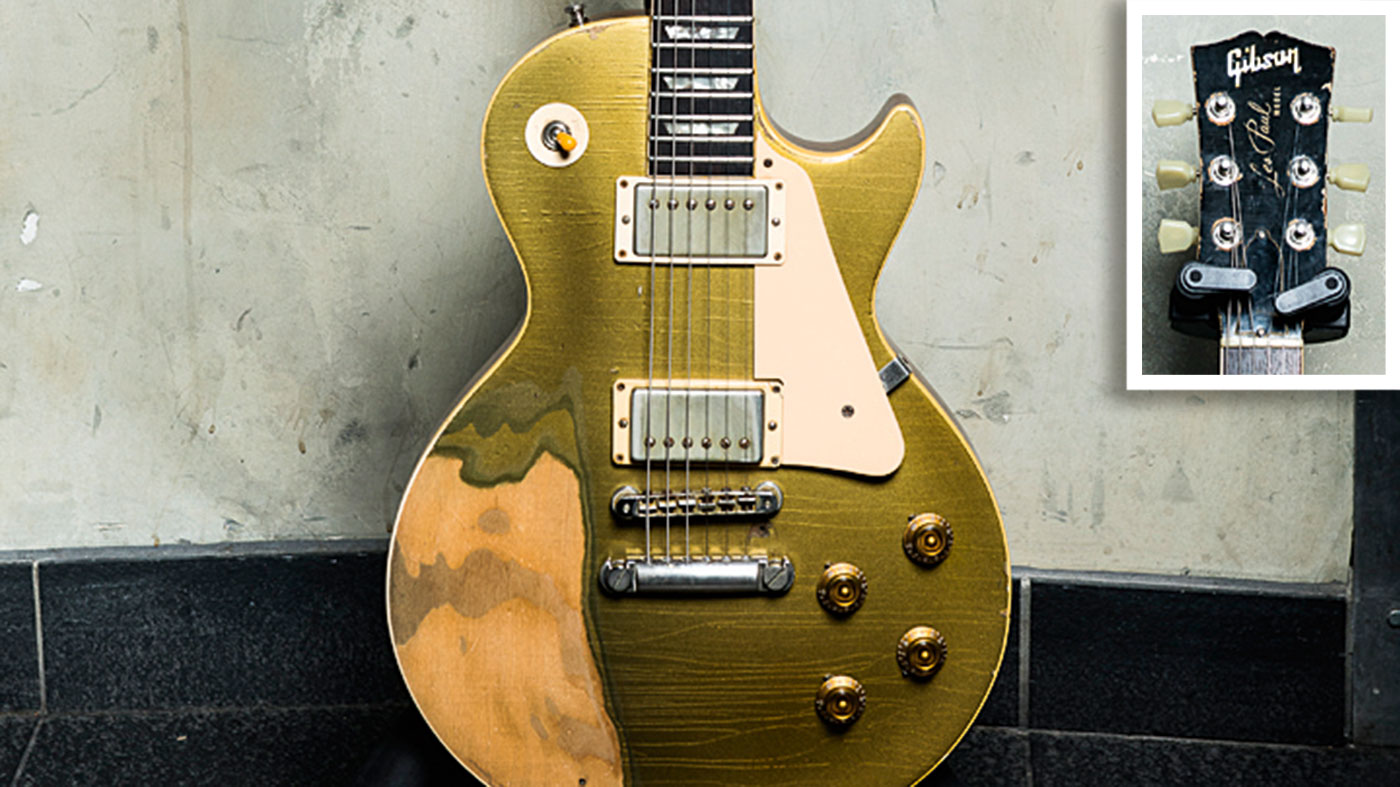
“The Goldtop, like my other 335, was in the flood. It got destroyed and was totally rebuilt by a company called RS Guitarworks. It sounds better than it ever did!
“It doesn’t make sense how seven feet of seawater flooding my space and a 10-month drying period did that. They found the age-specific pickups, wound in the classic 50s PAF style, and it came back sounding and playing better than ever.
“I made Shake Your Money Maker on that guitar, that’s how long I’ve had it. I bought it for $400 in Atlanta back in 1988. It’s a late 60s Gibson, right when they started making Les Pauls again after a period of Les Paul SGs.
“They used the same wood from the 50s in the warehouse. The bodies were cut and never used, I guess there was a falling out with Les Paul or whatever. When they started remaking them, there was a bunch of leftover bodies from the 50s. It’s like a ‘68 50s reissue!”
RR Boost
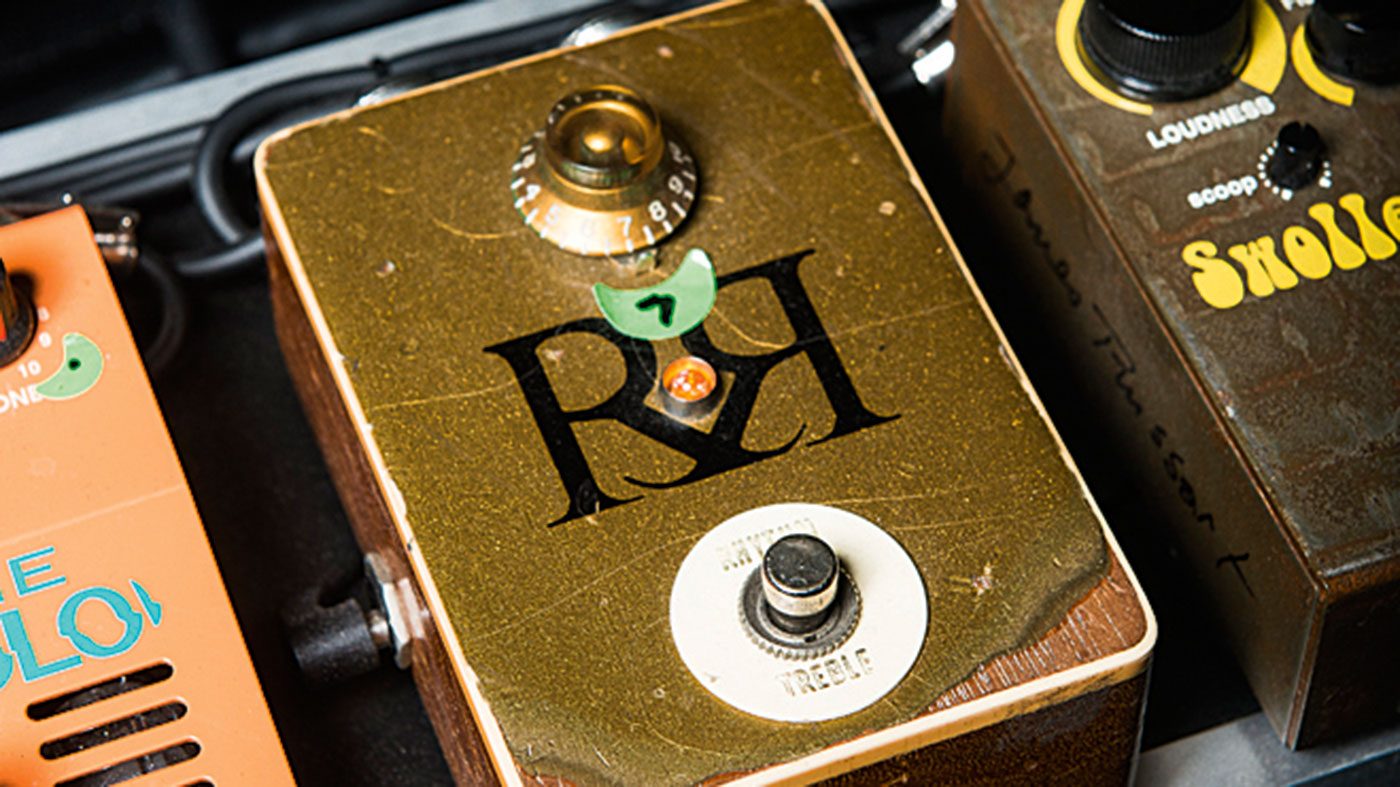
“This is made by the same people that restored my Goldtop. They took the actual paint from that guitar, because you could pretty much peel it off with your hands, and they mixed it in with other things and sprayed it onto that!”
Vox AC30
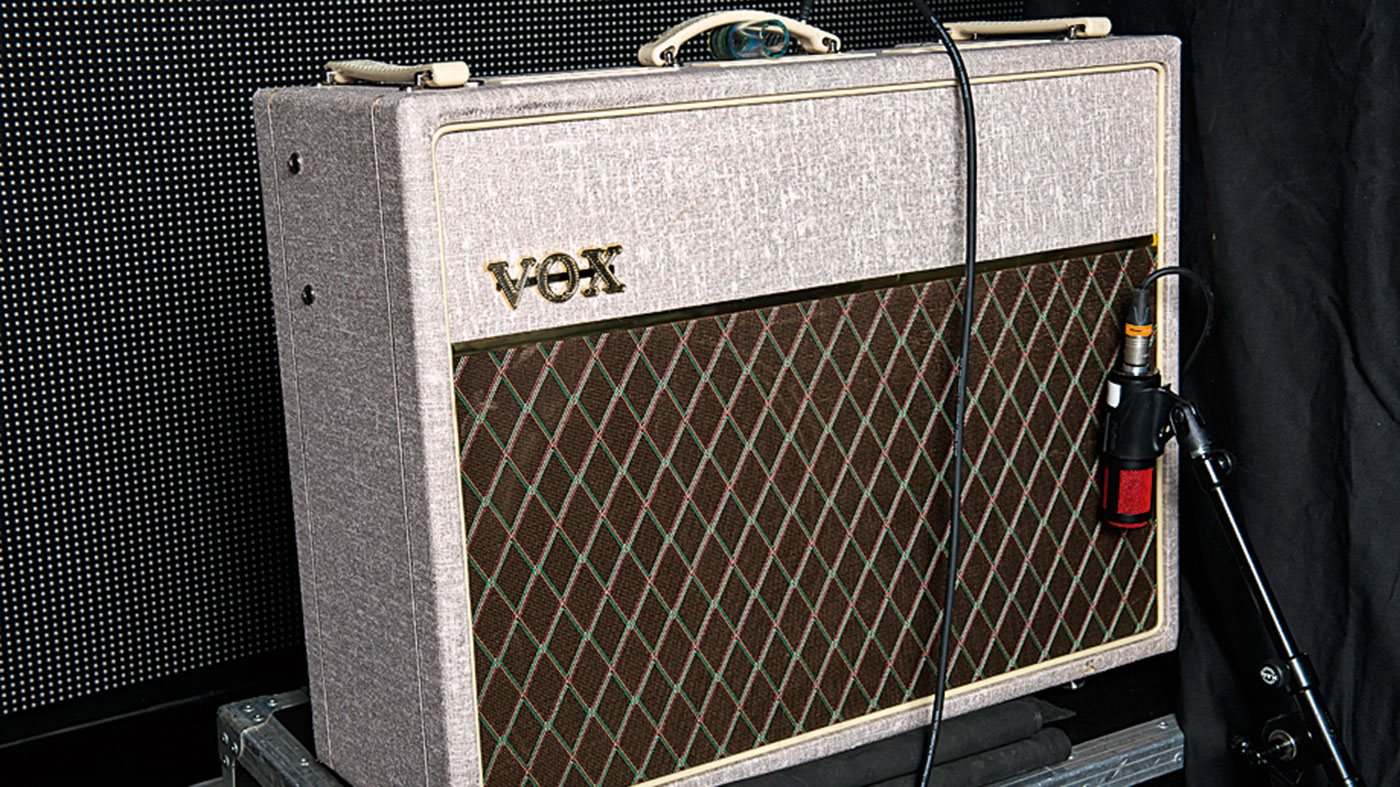
“This is one of the hand-wired models like then ones I toured a lot with in the Crowes. I love the way they sound, whenever I can get one - I’ll use it!”
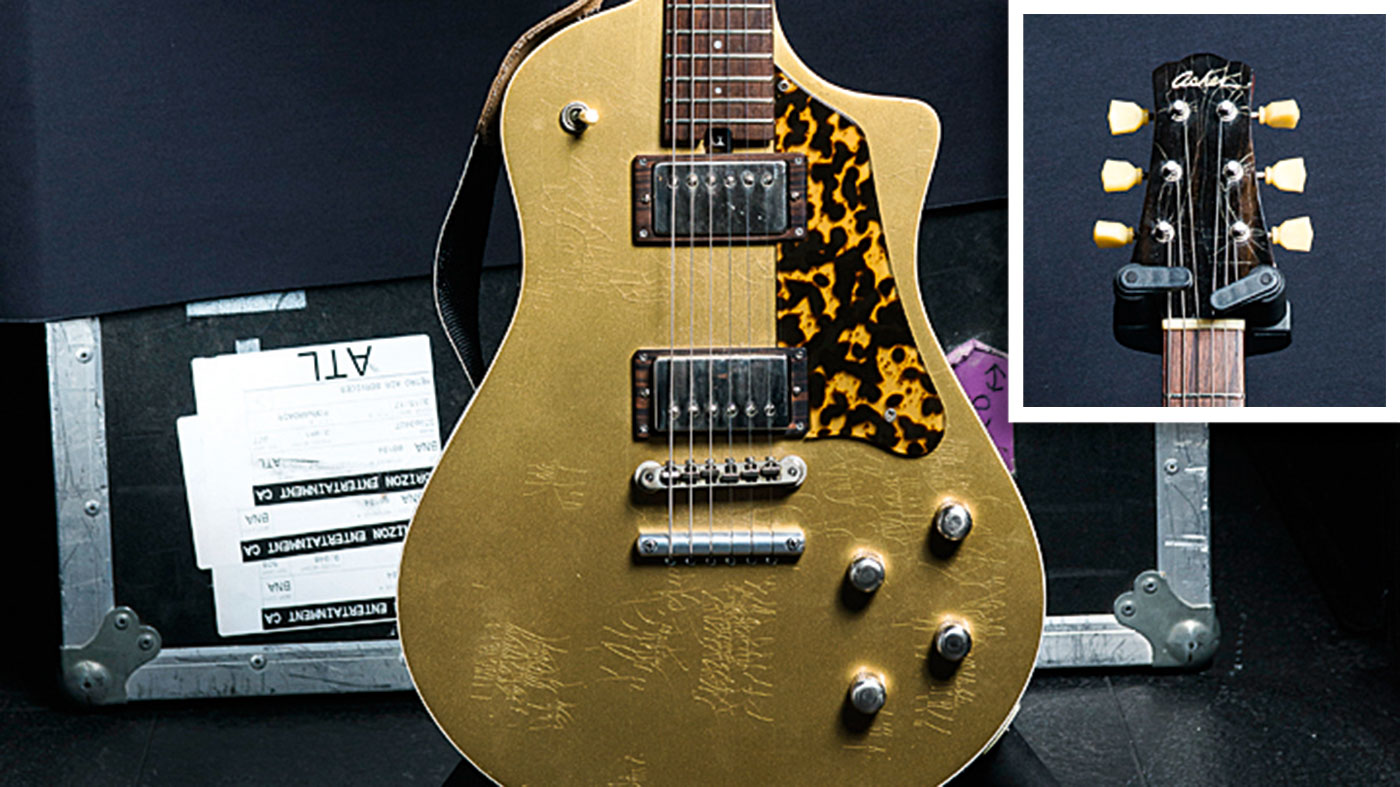
Marc's gear
Asher Electro Sonic Neck Thru Goldtop [above]
Marc: “This is a model that Bill Asher came up with after I was already working with him on what would become my signature model. I fell in love with it immediately - how it felt and how it hung off my neck. It felt like my guitar.
It’s like a Les Paul without the cap or arched bit. The scale length is in between Fender and Gibson
“Technically I guess it’s a Firebird of sorts - one piece of wood down the centre, no neck joint and then two sides laminated on. It’s like a Les Paul without the cap or arched bit. The scale length is in between Fender and Gibson, which gives it a unique voice.”
Satellite Amps Eradicator
“This pedal is made in San Diego by a guy called Adam Grimm. He’s like a dragster guy - and the stuff he makes is just like a dragster. It doesn’t need bells or whistles, it just works. This thing is practically a tube amplifer. So if I get a rental or backline amp that’s beat to hell, I can slam it into submission with a nice front-end gain.”
BearFoot Red Booster
“This was a prototype brought to me when I was playing with Ben Harper. I’ve been using it forever.”
The Magpie Salute’s self-titled album is out 9 June on Eagle Rock
Amit has been writing for titles like Total Guitar, MusicRadar and Guitar World for over a decade and counts Richie Kotzen, Guthrie Govan and Jeff Beck among his primary influences. He's interviewed everyone from Ozzy Osbourne and Lemmy to Slash and Jimmy Page, and once even traded solos with a member of Slayer on a track released internationally. As a session guitarist, he's played alongside members of Judas Priest and Uriah Heep in London ensemble Metalworks, as well as handling lead guitars for legends like Glen Matlock (Sex Pistols, The Faces) and Stu Hamm (Steve Vai, Joe Satriani, G3).


